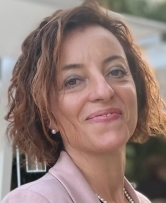A journey toward global value chain upgrading: Exploring the transition from backward to forward integration
11 June 2024 2:00 pm CEST
Join Nebojsa Stojcic as he reveals new insights into how backward integration influences forward integration in global value chains.
Venue
Webinar via Zoom - Please register at the link below
Description
Global value chains (GVCs) are embraced worldwide as a gateway to technological and economic upgrading. Countries integrate into backward, value-importing linkages with the aim of accumulating technological capabilities and transitioning towards creating their own forward, value-exporting chains and capturing a greater share of the value generated within GVCs.
Existing knowledge, which is largely fragmented and descriptive, points to a number of uncertainties and complexities that make this process anything but linear. It is open question whether the deepening backward linkages facilitates forward integration in GVCs.
During this event, a new research using data from 65 countries over two decades will show that the impact of backward integration on forward integration in GVCs varies over time and that it is moderated by the level of development of the country, the diversity of the GVC partner network and the innovation conditions in the home market.
The study adds a new perspective to the literature on GVC-driven upgrading.
The project leading to this webinar has received funding from the European Union’s Horizon 2020 research and innovation programme under the Marie Sklodowska-Curie grant agreement No. 101031139.
Any dissemination of the results of this event, reflect only the presenters' view. The European Commission is not responsible for any use that may be made of the information it contains.
This event will be recorded.
Registration
Speaker(s)
Nebojša Stojčić is vice-rector at University of Dubrovnik, Croatia, visiting professor at Staffordshire University, UK and professor at Faculty of Economics and Business, Zagreb, Croatia. His research interests are industrial economics, technological catching-up and economics of innovation in emerging economies. Results of his research were published in leading journals such as European Economic Review, Research Policy, Journal of Business Research, Small Business Economics, Journal of Technology Transfer, Regional Studies, Technovation and others and several times included in European Commission’s research and innovation literature recommendations for policy makers. As coordinator and researcher he participated in more than 30 projects financed under H2020, FP7, Erasmus+, Croatian Science Foundation and other international and national programmes. According to Web of Science, he is ranked among three most productive Economics and Business scholars in Croatia.
Silvia Nenci is an Associate Professor of Economic policy at the University of Roma Tre, Italy. She holds a Ph.D. in Economics from the University of Rome – Sapienza.
Silvia has worked for several research institutes in Italy and abroad and in national and international research projects on the subjects of international economics and trade policy. She has consulting experience with several national and international institutions, including the Italian MoFA, the Italian Trade Agency, the Inter-American Development Bank, the Global Development Network (GDN), the Food and Agriculture Organization (FAO) and the International Trade Centre of UN.
Her research interests include: international trade; trade policy; global value chains; trade and development; multilateral and regional trade integration; international economic policy; migration; gravity model of international trade; policy impact assessment and international trade networks.



